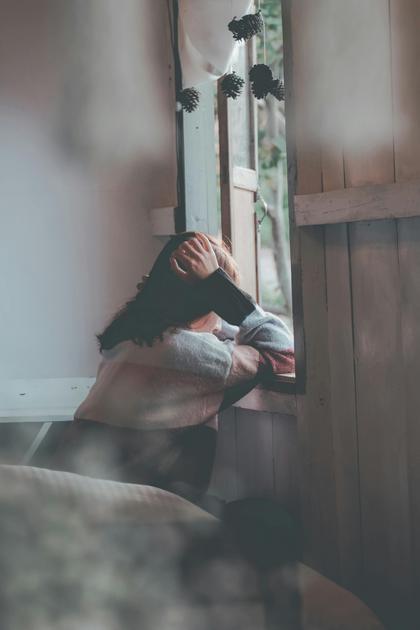Are you feeling the weight of woman anxiety? You’re not alone. Many women, especially those over 30, experience waves of anxiety that can stem from daily stresses, hormonal changes, and societal pressures. It’s easy to feel lost in the chaos of responsibilities, and often, we carry these burdens silently. However, understanding that you are not alone is the first step toward finding relief. In this article, we will explore various aspects of woman anxiety, the impact it can have on your life, and insightful strategies to reclaim your peace.
The Calm Reset — 7 Days to Feel Steady, Kind & In Control Again - Only $2.99
Gentle guidance trusted by our community.
Understanding Woman Anxiety and Its Roots
Woman anxiety is a complex issue that many women experience throughout their lives. It can stem from various sources, including societal pressures, personal experiences, and internal conflicts. Understanding why anxiety manifests in women is crucial for unraveling its impact. Many women find themselves overwhelmed by trying to balance careers, family responsibilities, and personal aspirations, often leading to feelings of stress and anxiety.
Some common roots of anxiety in women can include:
- Societal Expectations: Women are often expected to fulfill multiple roles, such as caregiver, employee, and partner, which can lead to immense pressure.
- Cultural Norms: Societal standards regarding appearance, success, and behavior can create unrealistic goals that foster anxiety.
- Past Trauma: Experiences of trauma or significant life changes can leave lingering anxiety, affecting daily life.
- Hormonal Changes: Fluctuations in hormones due to menstruation, pregnancy, or menopause can also contribute to heightened anxiety levels.
The Silent Struggles Women Face Daily
Women often experience anxiety in silence, feeling isolated in their struggles. Daily routines can be punctuated by moments of panic, worry, and self-doubt, yet many women mask these feelings. It’s not uncommon to put on a brave face while internally battling anxiety. This silent struggle can feel lonely and daunting.
Consider the woman who juggles work and family. She might feel an invisible weight, constantly worrying about meeting the expectations at work while also nurturing her family. These pressures can result in feelings of inadequacy or fear of failure. Recognizing these silent battles is the first step toward addressing the anxiety that plagues many women.
Emotional Symptoms of Woman Anxiety
Emotional symptoms of anxiety can be diverse and often debilitating. Women may notice feelings of:
- Persistent Worry: An ongoing sense of dread over mundane tasks or future events.
- Panic Attacks: Sudden bouts of overwhelming fear that can lead to physical symptoms.
- Restlessness: A constant sensation of needing to be on the move or feeling unable to relax.
- Crying Spells: Unexplained bouts of sadness and crying due to accumulated stress.
- Difficulty Concentrating: A clouded mind that makes it challenging to focus on tasks.
Physical Manifestations of Anxiety in Women
Anxiety doesn’t just affect the mind; it also takes a toll on the body. Women can experience various physical symptoms, which may include:
- Increased Heart Rate: A racing heart that can be alarming, especially during panic attacks.
- Shortness of Breath: Difficulty breathing during anxious moments, leading to feelings of suffocation.
- Muscle Tension: Chronic tension in the body, especially in the neck, shoulders, and back.
- Fatigue: A constant state of tiredness that isn’t alleviated by rest.
- Digestive Issues: Stomach problems, such as nausea or irritable bowel symptoms.
Ways to Manage Anxiety Effectively
Managing anxiety can often feel like a monumental challenge. However, there are effective strategies that women can adopt to regain control over their emotional well-being:
- Mindfulness and Meditation: Practicing mindfulness can help ground you in the present moment, reducing anxiety significantly.
- Physical Activity: Regular exercise releases endorphins, which can improve your mood and alleviate stress.
- Healthy Eating: A balanced diet can have a profound impact on anxiety levels. Foods rich in Omega-3 fatty acids, antioxidants, and vitamins are particularly beneficial.
- Establishing Routines: A consistent daily routine can foster a sense of control and predictability.
- Journaling: Writing down thoughts and feelings can provide a safe outlet for emotions and help clarify your experiences.
The Role of Hormonal Imbalance in Anxiety
Hormonal imbalances are often overlooked contributors to anxiety in women. Hormones like estrogen and progesterone can significantly impact mood and emotional stability. During different life stages such as menstruation, pregnancy, and menopause, fluctuations in these hormones can exacerbate anxiety. Understanding how these changes affect emotional well-being is vital.
For many women, recognizing these hormonal fluctuations can help in managing symptoms. Seeking advice from healthcare professionals can provide insights into natural remedies and treatments that align with hormonal health.
Creating a Supportive Environment
A supportive environment can significantly alleviate anxiety symptoms. Surrounding yourself with understanding friends and family can foster a sense of belonging. Creating a safe space at home that promotes relaxation can also be beneficial. Consider:
- Setting Up a Calm Space: Designate a quiet area with soothing colors, comforting objects, and calming scents.
- Open Communication: Share your feelings with trusted loved ones who can offer support and understanding.
- Joining Support Groups: Engaging with others who share similar experiences can be incredibly validating and reassuring.
Empowering Practices for Daily Calmness
Incorporating empowering daily practices can enhance feelings of calmness and confidence. Here are some suggestions:
- Gratitude Journaling: Taking time each day to acknowledge what you’re grateful for can shift your focus from anxiety.
- Deep Breathing Exercises: Simple breathing techniques can ground you during stressful moments, promoting relaxation.
- Affirmations: Using positive affirmations daily can empower you to combat self-doubt and instill confidence.
- Nature Walks: Spending time outdoors can significantly improve your mental state.
- Creative Outlets: Engaging in art, music, or any creative activity can be a beautiful way to express and process feelings.
How to Seek Help Without Feeling Alone
Seeking help for anxiety can feel daunting, especially with the stigma surrounding mental health. But it’s essential to remember that reaching out for support does not signify weakness—rather, it demonstrates strength and self-awareness. Here’s how to seek help effectively:
- Find the Right Professional: Look for therapists or counselors who specialize in anxiety issues.
- Online Resources: Utilize online platforms that connect women with professionals and support groups without the need to meet in person.
- Talk to Trusted Friends: Sharing your journey can often lead to unexpected support and advice.
If you want to discover how many women are resolving their anxiety challenges without heavy medication, see here.
Embracing a Journey Towards Emotional Wellness
Embracing the journey toward emotional wellness is not a linear path but a series of steps filled with growth and self-discovery. Remember, it is possible to overcome the challenges of anxiety and reclaim your life. Each small step taken toward emotional health can lead you to brighter days.
Many women before you have walked this path and have found joy and serenity. Starting this journey involves understanding your feelings, seeking support, and practicing self-care. Let the stories of others inspire you, and trust that your journey can lead to healing.
Take the first step today towards calming your mind and fostering your confidence. You deserve to feel at ease in your life.
The Calm Reset — 7 Days to Feel Steady, Kind & In Control Again - Only $2.99
Gentle guidance trusted by our community.







